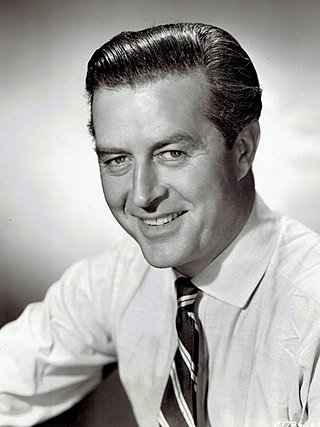
Ray Milland was a Welsh-American actor and film director. He is often remembered for his portrayal of an alcoholic writer in Billy Wilder's The Lost Weekend (1945), which won him Best Actor at Cannes, a Golden Globe Award, and ultimately an Academy Award—the first such accolades for any Welsh actor.

State Fair (1933) is an American pre-Code comedy-drama film directed by Henry King and starring Janet Gaynor, Will Rogers, and Lew Ayres. The film tells the story of a farm family's multi-day visit to the Iowa State Fair, where the parents seek to win prizes in agricultural and cooking competitions, and their teenage daughter and son each find unexpected romance. Based on the bestselling 1932 novel by Phil Stong, this was the first of three film versions of the novel released to theaters, the others being the movie musicals State Fair (1945) starring Jeanne Crain and Dana Andrews, and State Fair (1962) starring Ann-Margret and Pat Boone. The 1933 version was nominated for an Academy Award for Best Picture and another for Best Adapted Screenplay, losing to Cavalcade and Little Women respectively.
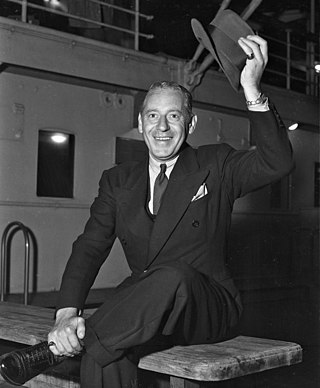
Henry O'Neill was an American actor known for playing gray-haired fathers, lawyers, and similarly dignified roles on film during the 1930s and 1940s.

Dorothea Sally Eilers was an American actress.

Charlie Chan in London is a 1934 American mystery film directed by Eugene Forde. The film stars Warner Oland as Charlie Chan. This is the sixth film produced by Fox with Warner Oland as the detective, and the second not to be lost, after The Black Camel (1931).
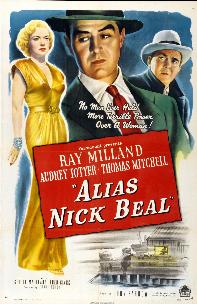
Alias Nick Beal is a 1949 American film noir mystery film retelling of the Faust myth directed by John Farrow and starring Ray Milland, Audrey Totter and Thomas Mitchell. The picture is also known as Dark Circle, Strange Temptation and Alias Nicky Beal.
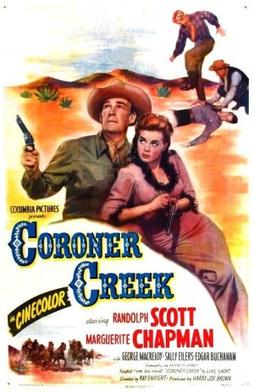
Coroner Creek is a 1948 American Western film directed by Ray Enright and starring Randolph Scott and Marguerite Chapman. It was based on the novel of the same name by Luke Short.
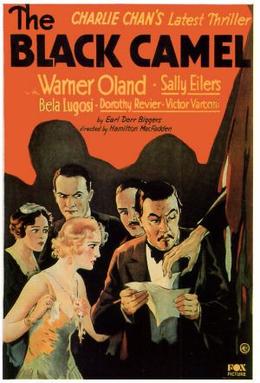
The Black Camel is a 1931 American pre-Code mystery film directed by Hamilton MacFadden and starring Warner Oland, Sally Eilers, Bela Lugosi, and Dorothy Revier. It is based on the 1929 novel of the same name by Earl Derr Biggers. It is the second film to star Oland as detective Charlie Chan, and the sole surviving title of the first five Chan films starring Oland. The Black Camel marked the film debut of Robert Young.

Betty Ann Davies was a British stage and film actress active from the 1920s to the 1950s. Davies made her first stage appearance at the Palladium in a revue in 1924. The following year she joined Cochran's Young Ladies in revues such as One Dam Thing After Another and This Year of Grace. Davies enjoyed a long and distinguished West End career which included The Good Companions (1934), Morning Star (1942), Blithe Spirit (1943) and Four Winds (1953). Her outstanding stage triumph was in the role of Blanche du Bois, which she took over from Vivien Leigh, in the original West End production of A Streetcar Named Desire. Davies appeared in 38 films, most notably as the future Mrs Polly in The History of Mr. Polly and in the first of the St Trinian's films The Belles of St. Trinian's, and was active in TV at the time of her death. She went into hospital on May 14, 1955, to have an operation for appendicitis, but suffered from complications following surgery and died the same day. She was 44. She left one son, Brook Blackford.

Talk of the Devil is a 1936 British crime film directed by Carol Reed and starring Ricardo Cortez, Sally Eilers and Basil Sydney.
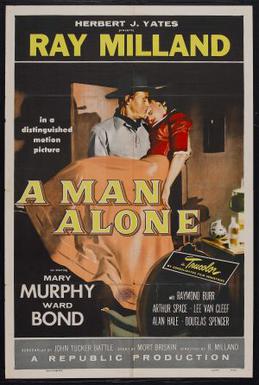
A Man Alone is a 1955 American Western film directed by Ray Milland starring Ray Milland, Mary Murphy, Raymond Burr, and Ward Bond. The story involves a man (Milland) who stumbles onto the aftermath of a stagecoach robbery in the Arizona desert in which there were no survivors.

Doughboys is a 1930 American Pre-Code comedy film starring Buster Keaton. It was Keaton's second starring talkie vehicle and has been called Keaton's "most successful sound Picture." A Spanish-language version was also made under the title, De Frente, Marchen.

Are Husbands Necessary? is a 1942 American comedy film directed by Norman Taurog and starring Ray Milland and Betty Field. It follows the misadventures of a wacky wife and her sometimes exasperated, but loving, banker husband. The film's screenplay was adapted by the husband-and-wife writing team of Tess Slesinger and Frank Davis, from the novel Mr. and Mrs. Cugat, the Record of a Happy Marriage by Isabel Scott Rorick. This novel would later be a source for the related 1948 radio series My Favorite Husband starring Lucille Ball, which itself would evolve into the television series I Love Lucy.

Sailor's Holiday is a 1929 American pre-Code sound comedy film directed by Fred C. Newmeyer and produced and distributed by Pathé Exchange. The film was also released in a silent version.
Pursuit is a 1935 American action film directed by Edwin L. Marin and written by Wells Root. The film stars Chester Morris, Sally Eilers, Scotty Beckett, Henry Travers, C. Henry Gordon and Dorothy Peterson. The film was released on August 9, 1935, by Metro-Goldwyn-Mayer.
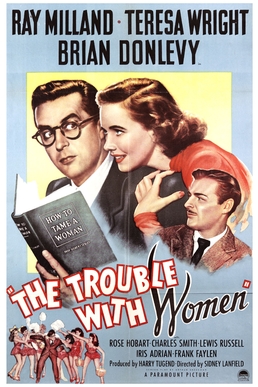
The Trouble with Women is a 1947 American comedy film directed by Sidney Lanfield and starring Ray Milland, Teresa Wright, Brian Donlevy. It was produced and distributed by Paramount Pictures. It was produced in 1945 but was held back from release for two years.

Walls of Gold is a 1933 American Pre-Code drama film directed by Kenneth MacKenna and starring Sally Eilers, Norman Foster, and Ralph Morgan.
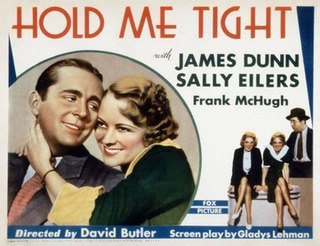
Hold Me Tight is a 1933 American pre-Code drama film directed by David Butler and written by Gladys Lehman. The film stars James Dunn, Sally Eilers, Frank McHugh and June Clyde. The film was released on May 20, 1933, by Fox Film Corporation.

We Have Our Moments is a 1937 American comedy mystery film directed by Alfred L. Werker and starring Sally Eilers, James Dunn and Mischa Auer.

The Flyin' Buckaroo is a 1928 American silent Western film directed by Richard Thorpe and starring Hal Taliaferro, Jack D'Oise and J.P. Lockney.



















